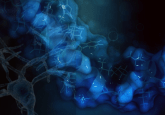Improve your health by fasting

The link between circadian rhythm and metabolism was proven around 10 years ago. Now, fasting has been linked to health improvement and protection against aging-related diseases through the same pathway.

A team of researchers at UC Irvine (UCI; CA, USA) has discovered that fasting causes the liver and skeletal muscle to alter their metabolism by affecting their circadian clocks. This could ultimately lead to improved health and protection against aging-related diseases.
“We discovered fasting influences the circadian clock and fasting-driven cellular responses, which together work to achieve fasting-specific temporal gene regulation,” commented lead author Paolo Sassone-Corsi (UCI’s School of Medicine). “Skeletal muscle, for example, appears to be twice as responsive to fasting as the liver.”
Sassone-Corsi was the first to prove the link between circadian rhythm and metabolism approximately 10 years ago by identifying the metabolic pathways through which circadian proteins sense energy levels in cells.
The team subjected mice to 24-hour periods of fasting. During these periods, the mice reduced their oxygen consumption (VO2), respiratory exchange ratio (RER), and energy expenditure. All these observations diminished when the mice were fed again. The results are similar to those observed in humans.
“The reorganization of gene regulation by fasting could prime the genome to a more permissive state to anticipate upcoming food intake and thereby drive a new rhythmic cycle of gene expression. In other words, fasting is able to essentially reprogram a variety of cellular responses. Therefore, optimal fasting in a timed manner would be strategic to positively affect cellular functions and ultimately benefitting health and protect against aging-associated diseases,” explained Sassone-Corsi.
The study could provide novel research pathways that lead to the development of new diet strategies for improving health in humans.





